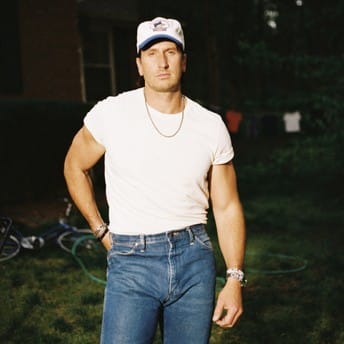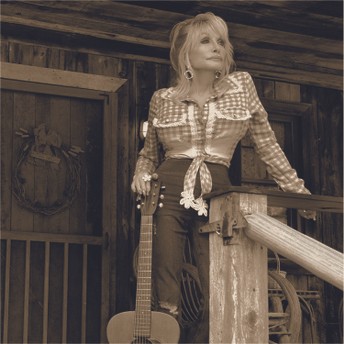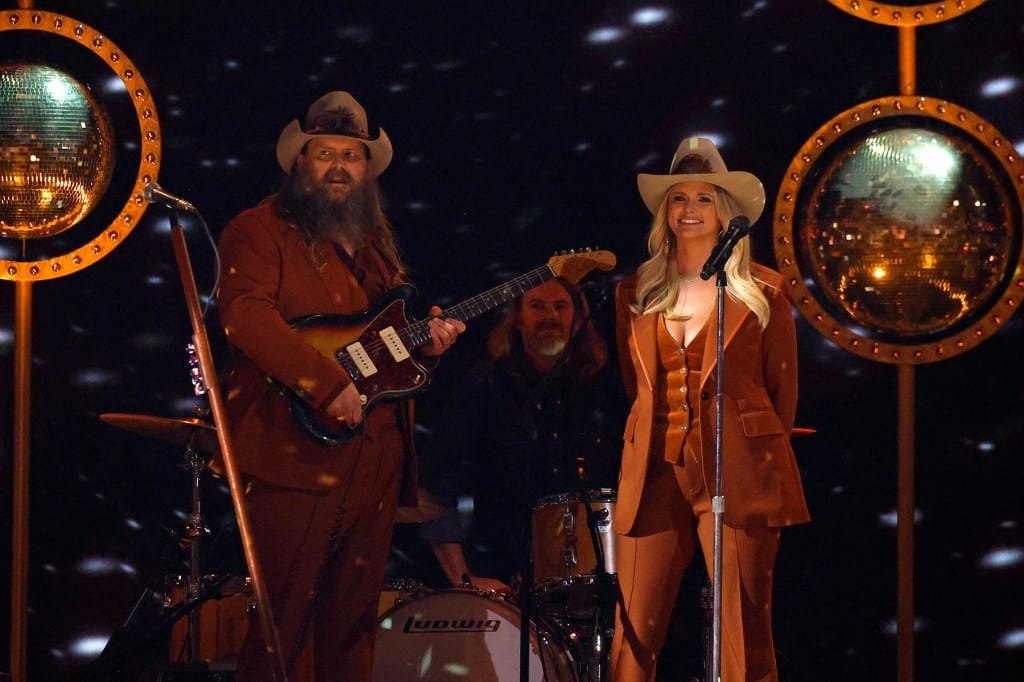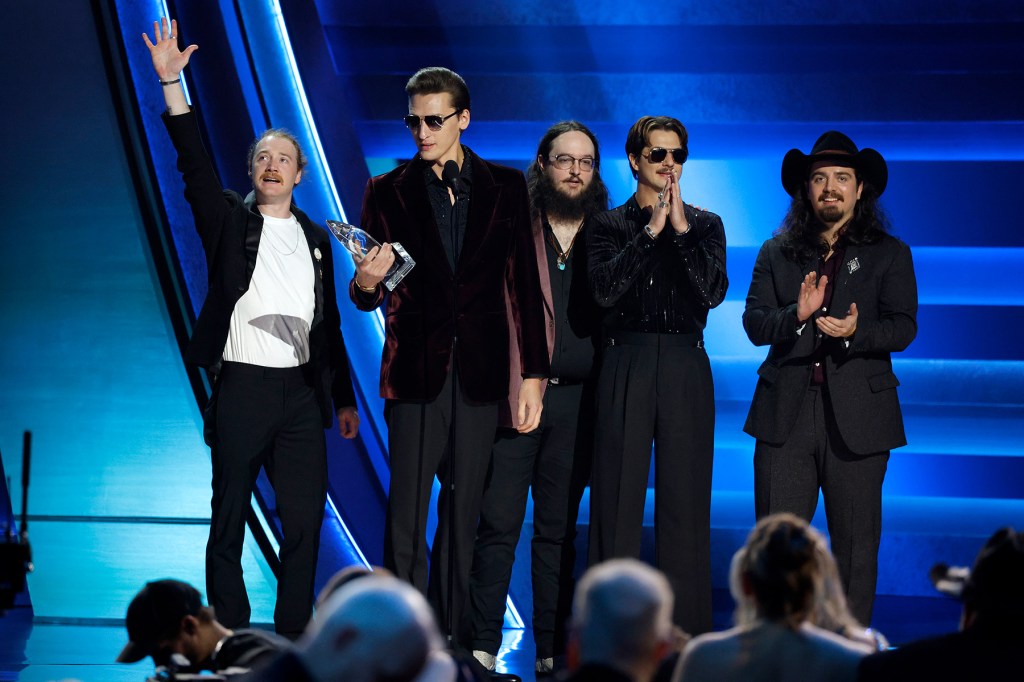genre country
Page: 3
Gordon Lightfoot’s “The Wreck of the Edmund Fitzgerald,” from 1976, scored major gains in U.S. streams and sales amid the 50th anniversary of its namesake ship’s sinking, leading to its coronation on a Billboard chart for the first time.
In the week ending Nov. 13, the song drew 3.7 million official U.S. streams and sold 5,000 downloads, according to Luminate, marking increases of 140% and 328%, respectively, week over week. It returns to Billboard’s Hot Rock & Alternative Songs chart dated Nov. 22 at No. 15. (Older songs are eligible for Billboard’s multimetric charts if ranking in the top half and with a meaningful reason for their resurgences.)
Related
The latter count pushes the song to No. 1 on Rock Digital Song Sales, marking its first placement atop any Billboard tally. It’s Lightfoot’s third leader on the list, after “If You Could Read My Mind” and “Sundown” in 2023, following Lightfoot’s death at age 84 that May 1.
Those two tracks also return to Rock Digital Song Sales, reflecting general interest in Lightfoot’s catalog beyond “The Wreck of the Edmund Fitzgerald”; “Sundown” ranks at No. 6 and “If You Could Read My Mind” at No. 10, each with 1,000 sold.
In all, Lightfoot’s catalog drew 9.1 million on-demand streams Nov. 7-13, a gain of 67%. It also sold 7,000 song downloads, a vault of 285%.
“The Wreck of the Edmund Fitzgerald” hits new highs of No. 2 on Country Digital Song Sales and No. 4 on the all-genre Digital Song Sales chart.
The song was released on Lightfoot’s 1976 album Summertime Dream. It hit No. 2 on the Billboard Hot 100 and No. 9 on Adult Contemporary, while the album rose to No. 12 on the Billboard 200.
The 50th anniversary of the wreck of the SS Edmund Fitzgerald was Nov. 10. As chronicled by Lightfoot, the 729-foot long freighter sank in Lake Superior during a sudden storm. All 29 crewmen aboard died. After Lightfoot wrote the track, he became close to several of the victims’ family members.
Trending on Billboard
Lainey Wilson may have just won numerous awards at the 2025 CMAs, which she also hosted, but the country star isn’t hanging up her cowboy hat for the year just yet.
As announced Thursday (Nov. 20), Wilson will join an already star-studded lineup of artists performing for this year’s Macy’s Thanksgiving Day Parade broadcast. According to the release, she’ll sing in front of the iconic Herald Square storefront in Manhattan, past which the parade route goes every year.
The news comes after previous announcements that Cynthia Erivo; Kpop Demon Hunters singers EJAE, Audrey Nuna and REI AMI; and the Broadway casts of Buena Vista Social Club, Just in Time and Ragtime will also deliver showcases for this year’s parade. The show’s full guest list includes the Rockettes, Matteo Bocelli, Colbie Caillat, Ciara, Foreigner, Debbie Gibson, Mickey Guyton, Jewel, Lil Jon, Kool & the Gang, Taylor Momsen, Busta Rhymes, Calum Scott, Teyana Taylor and more.
Viewers can also expect to see the department-store chain’s beloved annual display of vibrant parade floats, enormous balloon renderings of classic characters and, of course, a sleigh carrying Santa Claus during the televised event.
It’s unknown what Wilson will sing during the show, but it could very well be a selection from her EP Peace, Love and Cowboys (Holiday Edition), which features her newly released cover of “Let It Snow!” with the late Bing Crosby. She also might perform something from her 2024 album, Whirlwind, which took home album of the year Wednesday (Nov. 19) at the CMAs. Wilson also won entertainer of the year and female vocalist of the year at the awards.
Hosted by Today‘s Savannah Guthrie, Hoda Kotb and Al Roker, the 2025 Macy’s Thanksgiving Day Parade will air at 8:30 a.m. in all time zones on NBC and Peacock.

Trending on Billboard
Country songs are frequently built on wordplay, but the best twists come when a listener can miss the gag but still get the point.
That’s the case with Russell Dickerson’s latest single, “Worth Your Wild.” If listeners don’t have the title in front of them, they’re likely to hear the hook as “I’ll make it worth your while.” And it still makes sense. In the sonic fog of a live arena, fans are particularly prone to hear it as “while,” so Dickerson has started playing it with the title flashing on the video screen behind him in green-and-white block letters, one word at a time: “WORTH. YOUR. WILD.”
“We put ‘wild’ as big as we can everywhere to make sure they get the play on words,” he says.
Explore
See latest videos, charts and news
Dickerson is invested in that title. He introduced it on Oct. 22, 2024, during a writing retreat with two of his frequent collaborators – Parker Welling (“Blue Tacoma,” “What’s Your Country Song”) and Casey Brown (“I Am Not Okay,” “Favorite Country Song”) – at a Florida Gulf Coast home Welling shares with her husband, Warner Chappell Nashville vp of A&R Spencer Nohe.
At first, they passed over “Wild” and wrote “Famous Back Home,” which became the title of his current album, released by Triple Tigers on Aug. 22. But once they completed “Famous,” the “Worth Your Wild” idea came back up, allowing them to invest a lot of energy in what Dickerson calls “a high-octane banger.”
The “Worth Your Wild” title also gave them a road map for the rest of the song. “Sometimes when you’re writing, titles or phrases kind of have a built-in cadence,” Brown explains.
Brown and Dickerson consumed themselves with a musical hook, establishing a guitar riff with a grimy, KISS-like tone. “It was probably even more belligerent when we were writing it,” Brown says. “I had some crazy rock-guitar sound with an octave pedal on it. It sounded like a metal band almost.”
Welling thought those two had the musical foundation under control, so she retreated to an adjacent room and started working on a story that fit the “Wild” hook. She pictured it fitting with text about a couple on a summer drive, not unlike the scenario in “Blue Tacoma.” And since she knew Dickerson and his wife, Kalie, when they were dating, she used their relationship history as a loose template.
“I just started writing down rhyming words – like ‘mile,’ ‘smile,’ those kinds of things – to get a chorus map in my mind,” she recalls.
All those rhymes lined up at the start of the chorus, with each of those three phrases melodically mirroring the grimy riff. Brown spit out a follow-up – “She said, ‘Gun it, keep the night runnin’” – that fed the song’s sense of abandon as they filled out that “Wild” section.
Welling also came up with some imagery that helped with the opening lines of the first verse, particularly a reference to “wind in her hair like the ‘80s.” “I was thinking about a girl with wind-blown hair, like the windows are down,” she says. “You think about girls in ‘80s rock videos and their hair is just so big and crazy. It’s kind of that vibe to me.”
They slid in a reference to a 2000 Crazy Town pop hit – “Butterfly,” and its additional wording, “sugar, baby” – throwing in a “T-R-O-U-B-L-E” reference as they underscored the night’s anticipatory promise. They also made a mental note that copyright permission might be required to use “Butterfly.”
Verse two had the couple parked “off 212 Kentucky,” a nod to terrain in Dickerson’s hometown, Union City, Tenn. In all likelihood, the actual road is Tennessee State Route 214, known locally as the Ken Tenn Highway. “I don’t know if the road names are exactly right,” Dickerson allows.
They left space for a guitar solo, and they created a bridge by piecing together some previous items in the song – the “T-R-O-U-B-L-E” line and two repeats of the “Wild” hook.
After they returned to Nashville, Brown says he “geeked out” on the demo, programming drum parts that enhanced the grimy riff, and playing an additional guitar atop that riff with a curly highlight.
“I’m always a fan of the marriage of a really big wall of rock guitars and then something real clean and chime-y up top,” he says. “That makes it like there’s kind of something for everybody.”
Dickerson and co-producer Josh Kerr (Maddie & Tae, Thomas Rhett) were so impressed with the demo that they mostly recreated it, substituting human musicians for the programmed parts, though they specifically kept Brown’s acoustic guitar, tuned to sound like an arpeggiated electric guitar in the verses. They also credited Brown as a co-producer.
Recording for the master proceeded one musician at a time, beginning with drummer Evan Hutchings on a Zoom hookup necessitated by a snowstorm. The rest of the players did their parts in Kerr’s studio, particularly Nathan Keeterle, who layered a raft of electric guitars.
“There’s probably six guitars just on the intro,” Kerr says.
Keeterle played every passage on at least two different instruments, giving Kerr the option of using dirty sonics or cleaner sounds in certain sections. Kerr would often employ them in tandem. Keeterle ultimately played more than 20 guitars on the track, including a solo with an ‘80s hair-band attitude.
“He just melted our faces off,” Kerr says. “I think I [used] solo one or two, and then I think I made him play it 15 more times because we were having so much fun.”
The “Butterfly” copyright issue went down to the wire. Unknown to Dickerson and his co-writers, “Butterfly” interpolated The Red Hot Chili Peppers’ “Pretty Little Ditty,” and even though “Wild” used only three words from “Butterfly,” Dickerson’s reps sought approval from all four Chili Peppers and both members of Crazy Town. The “Wild” writers were considering alternative lyrics when they finally received a thumbs up in the final week of production – the six “Butterfly” creators accepted co-writer credits but sought no financial compensation for use of their three words.
Dickerson used two sessions to finish the vocals. Most of it was easy, but he sang one line – “Driving me crazy” – perhaps 150 times to get the exact tone. “It was super-choppy,” Dickerson says of his first efforts, “and not smooth at all.”
Originally, “Worth Your Wild” wasn’t in line to be a single, though Nohe repeatedly told Welling that it could work. “Spencer,” she says, “always knows.”
It was the best-streaming track left on the Famous Back Home album, and the energy was perfectly suited for this phase in Dickerson’s release schedule, as well as his live show. Triple Tigers issued “Worth Your Wild” to country radio via PlayMPE on Oct. 14.
“’Happen to Me’ was uptempo,” he notes. “Why would we not just keep the pedal down? I want people to come to Russellmania and have the freaking time of their lives.”
Dickerson promises to make it “Wild.”
Trending on Billboard The Country Music Association Awards wouldn’t be complete without, well, some “country dang music,” as entertainer of the year Lainey Wilson phrased it Wednesday night (Nov. 19) while hosting the 2025 ceremony at Bridgestone Arena in Nashville. That’s why numerous artists took the stage for a cornucopia of live performances during this […]

Trending on Billboard
As country icon Dolly Parton continues to convalesce from an undisclosed illness that has kept her close to home for the past month the singer sent a heartfelt thank you message to Monday’s (Nov. 17) gathering of the International Association of Amusement Parks and Attractions (IAAPA), where her Dollywood theme park was inducted into the Hall of Fame.
Explore
See latest videos, charts and news
“Hey there it’s Dolly! And I sure wish I could be with you in person today,” Parton said in a thank you video posted on her Instagram on Wednesday (Nov. 19). “But you probably heard that I been dealing with a few health challenges this fall and my doctors told me to take it easy for just a little while.”
Dressed in a bedazzled light blue jumpsuit and looking bright-eyed and energetic while seated in front of a blue backdrop next to a vase of white flowers, Parton, 79, said she was “truly sorry” she could not be there in person, adding that she wanted to say thank you for the “incredible honor.” She also thanked her partners of 40 years in the park, giving them props for always listening to her “big ideas” for changes to the park in Pigeon Forge, Tenn. that averages around three million visitors a year, making it one of the state’s biggest ticketed tourist attractions.
She recalled when she first had the idea for Dollywood she dreamed of a destination in the Smoky Mountains where her family could perform, she could provide steady work for the members of her community, as well as a place where families could come to laugh, play and make memories together. She told the story of taking over the old Rebel Railroad park in 1986 and being nervous on opening day, wondering if anyone would show up.
“I peeked out the window of my bus and saw all those cars lined up and would you believe it, they’re still lined up today!,” said Parton, who is only the second woman to be inducted into the IAAPA Hall of Fame on her own and the fourth total woman in the organization’s 100-year history. “From the bottom of my heart, thank you for this honor. For me and for everyone who makes Dollywood what it is. And to all my friends and partners and to all of you out there helping families make magic everyday in your own parks and places, remember that I will always love you.”
Parton was also unable to attend Sunday night’s (Nov. 16) 2025 Governors Awards in person to accept the Jean Hersholt Humanitarian Award due to her recent health issues. Back in early October, Parton’s sister Freida sparked some concern among the singer’s fans when she asked for prayers for the singer as she dealt with the undisclosed health matter, then apologized for scaring them. “She’s been a little under the weather, and I simply asked for prayers because I believe so strongly in the power of prayer. It was nothing more than a little sister asking for prayers for her big sister. Thank you all for lifting her up. Your love truly makes a difference,” Freida said at the time.
A day later, Parton posted an Instagram video assuring folks that she’s under the weather but still busy. “I’m here doing some commercials for the Grand Ole Opry, which is why I’m dressed kinda like a country-western girl, but before I got started, I wanted to say, I know lately, everybody thinks that I am sicker than I am … do I look sick to you?! I’m workin’ hard here,” she said.
“Anyway, I wanted to put everybody’s mind at ease, those of you that seem to be real concerned, which I appreciate,” she added. “I want you to know that I’m OK. I’ve got some problems as I mentioned. Back when my husband Carl was very sick, that was for a long time, and then when he passed, I didn’t take care of myself. I let a lot of things go that I I should’ve been takin’ care of, so anyway when I got around to it, the doctor said, ‘We need to take care of this, we need to take care of that.’ Nothin’ major, but I did have to cancel some things so I could be closer to home, closer to Vanderbilt, where I’m kinda havin’ a few treatments here and there.”
Though her team has not discussed what has laid the country icon low, in that video message Parton assured her followers that she’s “not dying.” Parton’s beloved husband of 59 years, Carl Dean, died earlier this year at age 82 and in September Parton announced that she was postponing her Las Vegas residency at The Colosseum at Caesars Palace — which was due to kick off next month — due to some health challenges. The residency is now slated to begin in 2026.
This year’s CMA Awards were marked by powerful female artist wins, as well as several first-time wins and a changing of the guard in certain categories. Lainey Wilson earned her second entertainer of the year win (she previously won in 2023), as well as her fourth consecutive female vocalist of the year win, and her […]
Many of the awards presented at the 2025 CMA Awards, which went down at Bridgestone Arena in Nashville on Wednesday (Nov. 19), went just about as expected. Did anyone seriously think that Lainey Wilson wasn’t going to win her fourth consecutive award for female artist of the year? And no one could have been too […]
Some artists didn’t just win at the 59th annual CMA Awards, which were held on Wednesday (Nov. 19) at Bridgestone Arena in Nashville. They made history. Of course, acts have been making history at the CMA Awards for years. In 1971, Charley Pride became the first (and is still the only) Black artist to win […]
Trending on Billboard Rapper-turned-country hitmaker BigXthaPlug and longtime genre superstar Luke Combs rocked the CMA Awards together on Wednesday night (Nov. 19) with the live TV debut of their teamup “Pray Hard.” Introduced by host Lainey Wilson (who called Combs her “camper trailer buddy”), the pair lit up the Bridgestone Arena stage in a semi-literal […]
Trending on Billboard
With country legend Vince Gill taking home the prestigious Willie Nelson lifetime achievement award at the 2025 CMA Awards on Wednesday (Nov. 19), it’s only fitting that a who’s who of country stars would show him their love.
First up, Americana star Brandi Carlile gave a plaintive rendition of Gill’s “When I Call Your Name.” Dressed in simple yet sleek maroon suit and tie, Brandi kept her eyes trained on Gill as she belted out his moving ballad. Soon, she was joined on stage to turn the song into a rare duet with country star Patty Loveless for a moving final beat.
Once the pair stepped off the stage, the King of Country himself, George Strait, stepped up to offer a tribute of his own to Gill. Instead of singing, though, Strait gave a speech celebrating Gill’s pioneering work in the country industry. “There’s not a lot more to say about this man that hasn’t been said, or that you don’t already know,” Strait offered. “But his guitar playing is amazing, his songwriting is amazing, his singing is amazing, he can sing higher than anyone I know … there’s not a more deserving person to receive this great honor.”
For his part, Gill thanked Carlile and Loveless for their tribute, joking that “it’s not lost on me that they had to have girls come out here and sing for me tonight — none of the boys can get up that high.” He also took the moment to revel in being honored with a lifetime achievement award that very few other artists have received.
Have you played Billboard’s “A Little Bit Country” Crossword?Play now!
“I think this has been give to nine or 10 people, and that list is astounding,” he said. “The man whose name is on this is a long, long friend. Fifty years we’ve known each other, shared stages and all that. I adore him.”
Lainey Wilson, along with serving as host during the ceremony, earned six nominations at the awards — the most of any artist in 2025, alongside fellow nominees Ella Langley and Megan Moroney. Meanwhile, stars including Luke Combs, Shaboozey, Brandi Carlile, Kelsea Ballerini and more took to the stage for their own performances.

 State Champ Radio
State Champ Radio 





